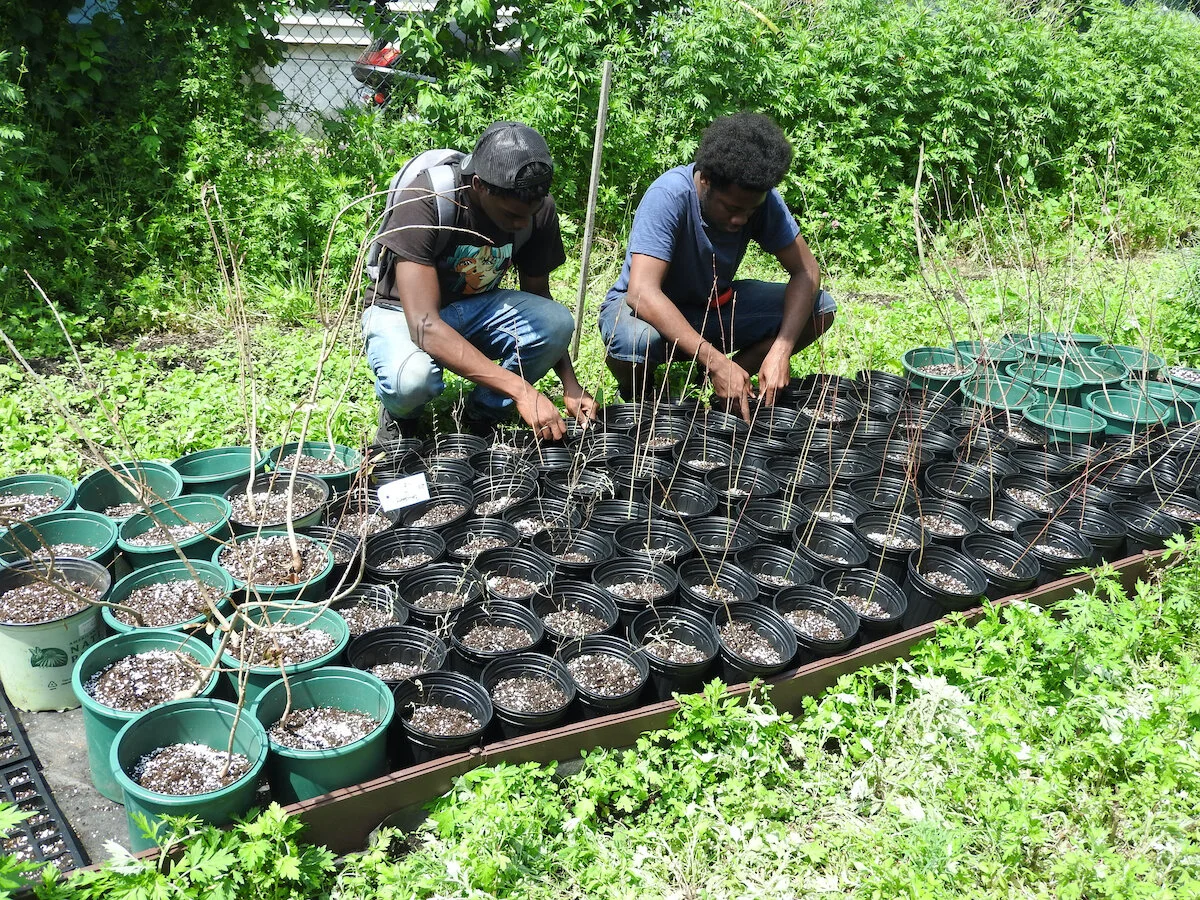With great pleasure, we present Menunkatuck’s Annual Report for 2023.
Conservation
Menunkatuck’s UrbanScapes Native Plant Nursery in the Newhallville neighborhood of New Haven is a partnership with Community Placemaking Engagement Network, a neighborhood community action group. We worked with seven neighborhood teens and adults to grow 3500 native perennials and shrubs. We planted many in neighborhood gardens and sold others.
Terry Shaw’s crew continued to install and replace Osprey platforms along Connecticut’s shore.
The Purple Martin colonies at Hammonasset and the Guilford Salt Meadow Sanctuary fledged almost 500 young, with half from Guilford; the Guilford colony has become one of the largest in the state. Tree Swallow nest boxes at Hammonasset, the Ox Pasture Preserve, Guilford Salt Meadow Sanctuary, and West River Memorial Park fledged 300 young birds.
Community Science
The East River Marsh Migration Survey continued with the East River Watershed Research Institute performing additional studies, including water quality monitoring.
The 2022 Christmas Bird Count had Menunkatuck teams scouring the Guilford-Long Island Sound count circle contributing to Audubon’s 122-year-old bird survey.
Advocacy
Lights Out Connecticut, a project to help migrating birds reach their destinations safely by reducing skyglow over our cities, became one of Menunkatuck’s projects. The Connecticut State Legislature passed and the Governor signed a Lights Out law that requires State office buildings to turn their lights out between 11:00 pm and 6:00 am.
Menunkatuck worked with the Audubon Connecticut policy team to pass through the General Assembly two other important laws establishing a Seabird and Shorebird Protection Program and banning the Harvesting of Horseshoe Crabs.
Outreach
Menunkatuck tabled at five events where we publicized our conservation and education activities. Our Facebook page has 2800 followers, and our email list has 1800 subscribers.
Education
Menunkatuck offered 13 Zoom and in-person community programs with an average audience of about 40 people and speakers and attendees from throughout the country.
We continued to stream video from our nest cameras in Clinton, at Hammonasset Beach State Park, and on Falkner Island.
We offered four field trips during the year, including a Bald Eagle watch and a whale watch.
Volunteers and Funding
We had 45 people who donated 2100 person-hours of volunteer time. They installed Osprey platforms, monitored nest boxes, conducted the marsh migration survey, did river cleanups, worked at UrbanScapes, and performed other activities. Their volunteer time was worth more than $70,000.
Menunkatuck leveraged your contributions into grants and gifts totaling more than $5,000.
In addition to maintaining our current projects, during 2023 we plan to use the greenhouse at the Urbanscapes Native Plant Nursery to propagate plants for salt marsh restoration and begin growing native trees for urban forests, establish new native plant demonstration gardens, expand Lights Out Connecticut to include municipal lights out policies, and work to pass through the General Assembly bills to protect wildlife from the indiscriminate use of second-generation rodenticides and to better regulate the use of neonicotinoid insecticides.
Menunkatuck is an all-volunteer organization with no paid staff. The majority of our programs and field trips are free, and any fee we charge is to cover the expenses of a program.






